Google Pixel 8a vs. Google Pixel 8: What's the difference?
The Google Pixel 8a is here, but how does it compare with the Pixel 8?
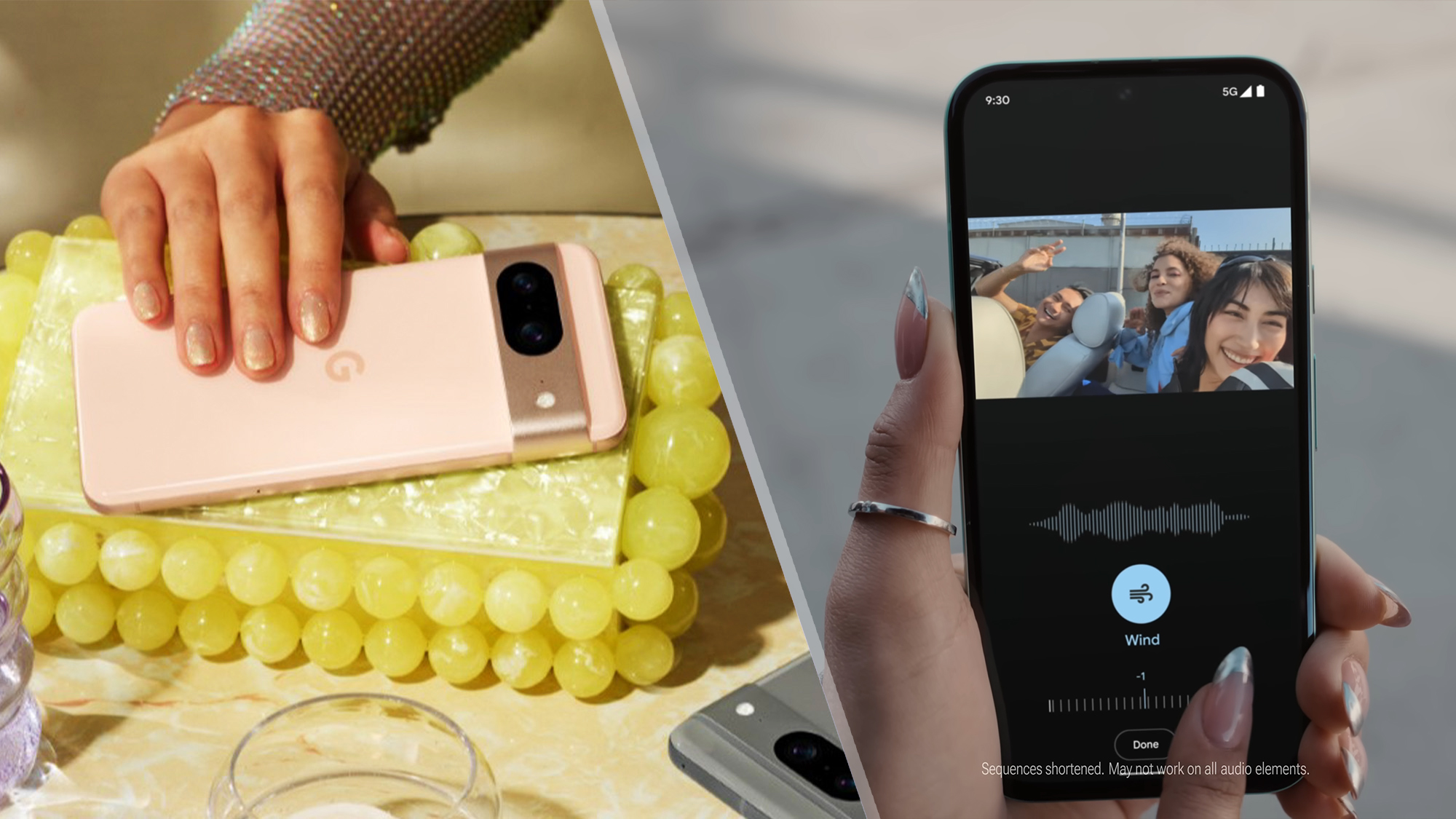
Google snuck in a Pixel 8a announcement shortly after Apple's "Let Loose" event this week, but we didn't miss it, and neither should you.
But what exactly is the difference between the Pixel 8 and the Pixel 8a?
First, let's get you caught up: The Pixel 8a replaces the Pixel 7a — both launched at $499. The Pixel 7a currently sits atop our best budget phones page, so we're hoping that the Pixel 8a steps up to the plate. However, the $699 Pixel 8 may offer upgrades to surpass its more affordable counterpart.
So, should you save $200 and go with the Pixel 8a?
| Row 0 - Cell 0 | Google Pixel 8a | Google Pixel 8 |
| Price | $499 | $699 |
| Display | 6.1 inches (2,400 x 1,080) 120Hz Adaptive | 6.2 inches (2,400 x 1,080) 120Hz Adaptive |
| Storage | 128 GB / 256 GB | 128 GB / 256 GB |
| CPU | Google Tensor G3 (4nm) | Google Tensor G3 (4nm) |
| RAM | 8GB | 8GB |
| Rear camera(s) | 64MP Quad PD wide, 13MP ultrawide | 50MP wide, 12MP ultrawide |
| Front camera | 13 MP | 10.5MP |
| Dimensions | 6 x 2.9 x 0.4 inches | 5.9 x 2.8 x 0.4 inches |
| Weight | 6.6 ounces | 6.6 ounces |
Google Pixel 8a vs. Google Pixel 8: Price
The Pixel 8a is outfitted with the Google Tensor G3 chip, a 6.1-inch (2400 x 1080) 120Hz display, 8GB of RAM, 128GB of storage, 64MP Quad PD wide and 13MP ultrawide rear cameras, and a 13MP front camera. (By the way, we knew much of this when Pixel 8a information leaked.)
The Pixel 8 starts at $699, which is outfitted with a Google Tensor G3 chip, a 6.2-inch (2400 x 1080) 120Hz display, 8GB of RAM, 128GB of storage, 50MP wide and 12MP ultrawide rear cameras, and a 10.5MP front camera.
Looking at these specs from afar, you might think that the Pixel 8a offers the better deal. If you're solely concerned about price, the Pixel 8a is a good choice for the average user who might not notice the finer differences between the two phones.
Sign up to receive The Snapshot, a free special dispatch from Laptop Mag, in your inbox.
Google Pixel 8a vs. Google Pixel 8: Design
You might think the Pixel 8a and Pixel 8 look pretty identical, and that's mostly true — well, apart from the colors — but there are some key differences.
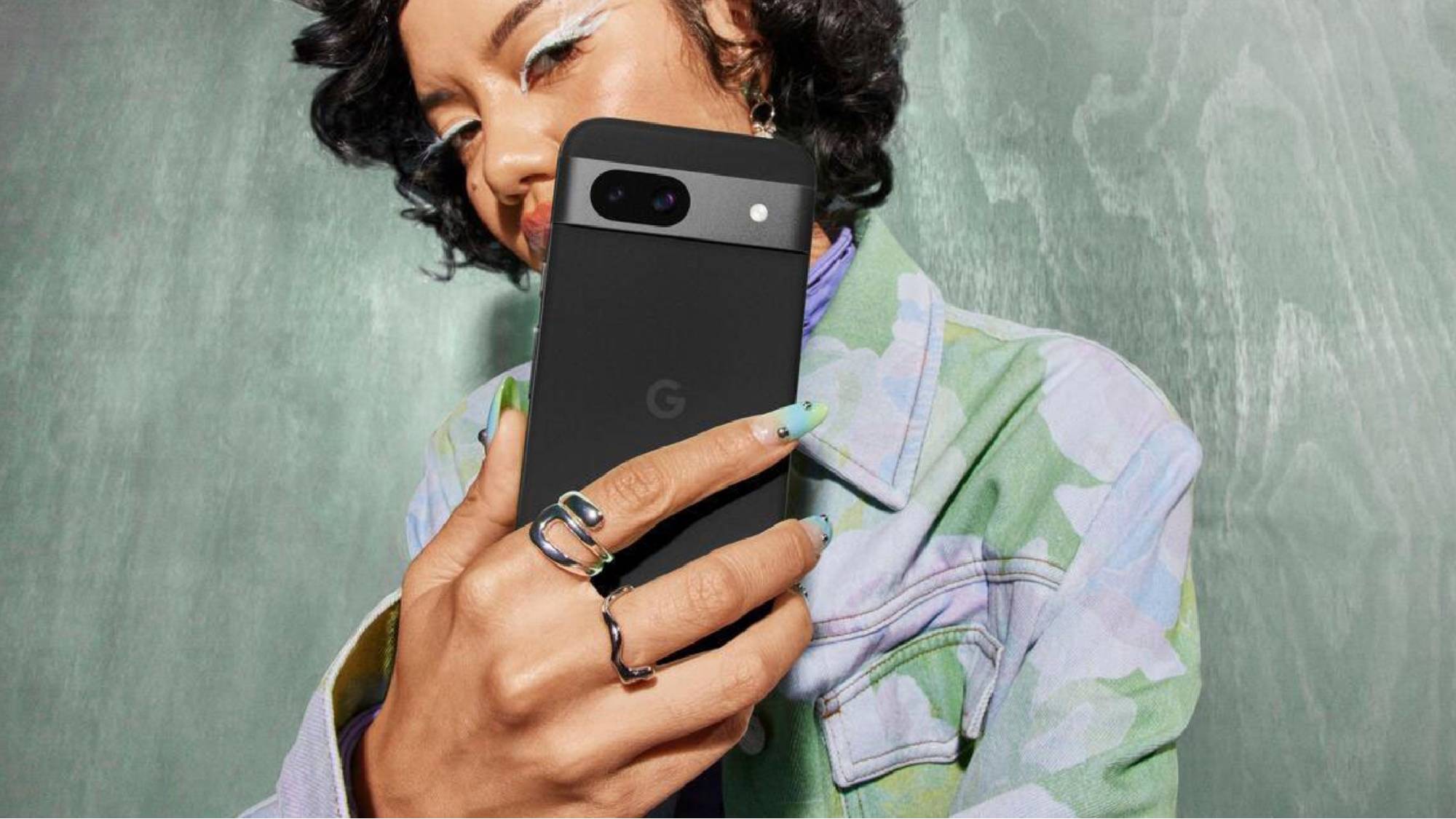
The Pixel 8a and Pixel 8 weigh 6.6 ounces, but the former measures 6 x 2.9 x 0.4 inches, and the latter is 5.9 x 2.8 x 0.4 inches. So, the pricier Pixel 8 features a sleeker design.
They share the Obsidian color scheme, but the other three colors differ. Google's Pixel 8a offers bolder Aloe (green) and Bay (blue) colors along with a Porcelain model.
Meanwhile, the Pixel 8 features softer, pastel tones with Mint (green) and Rose (rose-gold-esque) but replaces Porcelain with a Hazel (gray-green? I have no idea what this is) color.
We'll get more into it later, but technically, the Pixel 8 features a slightly larger display with narrower bezels at 6.2 inches versus the Pixel 8a at 6.1 inches.
The Pixel 8 gets superior IP68 dust and water protection compared to IP67 for the Pixel 8a. That means the former could survive 30 minutes in water at depths of up to 1.5 meters (~5 feet) compared to 1 meter (3 feet) for the Pixel 8a. That may not make a difference unless you're diving with your phone.
Both also feature some variant of Corning drop protection, with the Pixel 8a’s front-facing Gorilla Glass 3 and the Pixel 8 sporting the more premium Gorilla Glass Victus.
The Pixel 8 offers slightly more protection and a slimmer design, but to the average user, you might be good with the Pixel 8a.
Google Pixel 8a vs. Google Pixel 8: Display
The Pixel 8a has a 6.1-inch, 2400 x 1080, 120Hz Adaptive display, while the Pixel 8 features a 6.2-inch, 2400 x 1080, 120Hz Adaptive display. Are we really losing just 0.1 inch? Well, it's a little more complicated than that.
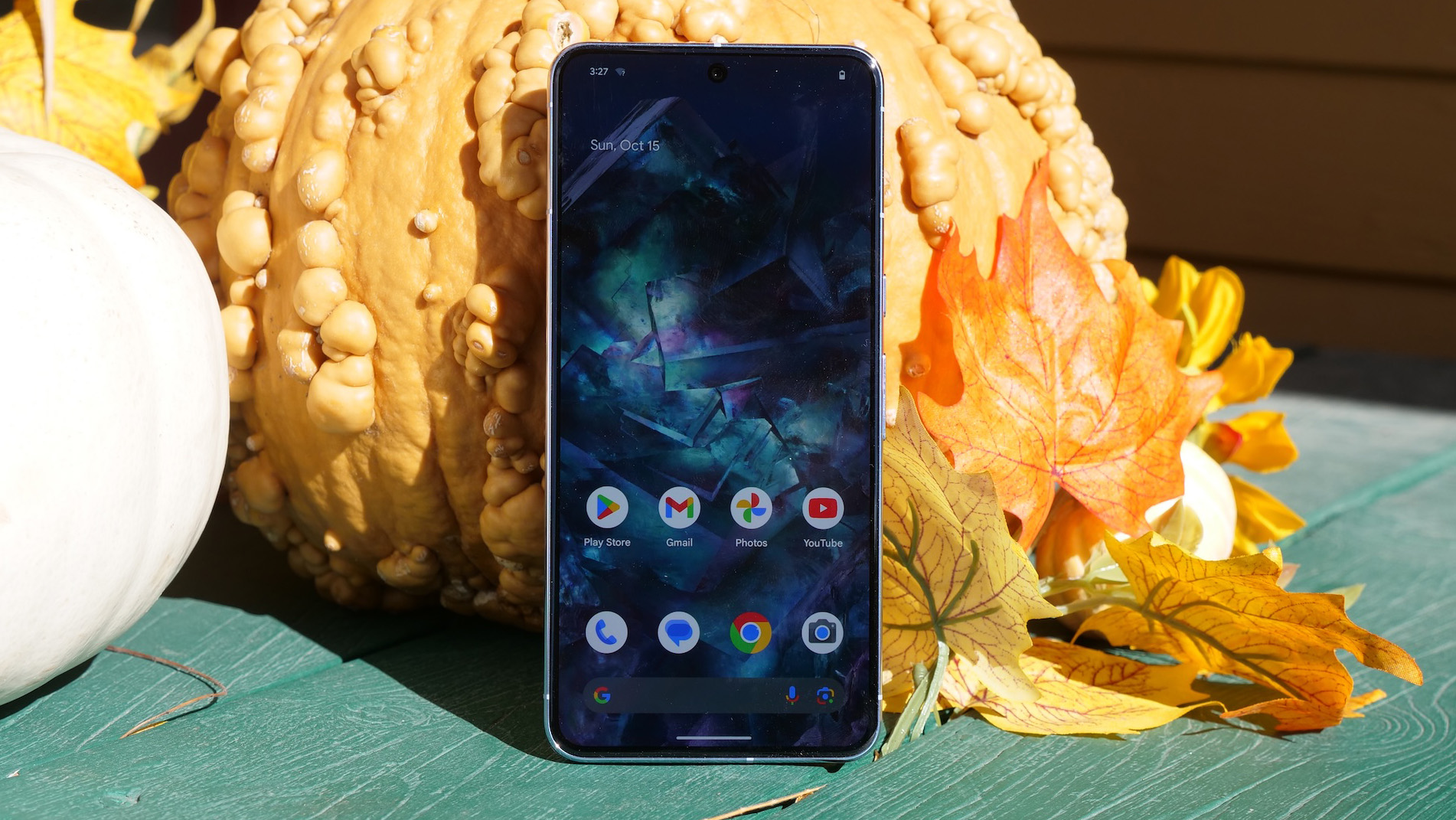
Looking at Google's tech specs for each of its phones, the Pixel 8a upgrades to 430 PPI (pixels per inch) versus the Pixel 8's 428 PPI to compensate for the slightly smaller screen. This is likely an imperceptible difference for users.
However, one thing that's unclear is the contrast ratio. The Pixel 8 is rated for 1,000,000:1 contrast ratio. But for the Pixel 8a, Google slides in a little ">" sign, as such: >1,000,000:1. That implies the Pixel 8a's contrast is not as good as the Pixel 8. But we won't know for sure until we get the product for ourselves.
Google also claims they both get the same brightness as well, up to 1400 nits (HDR) and up to 2000 nits (peak brightness).
Google Pixel 8a vs. Google Pixel 8: Features
Let's compare the Google Pixel 8a and Pixel 8 to see what else is packed into them. There are many similarities but minor differences.
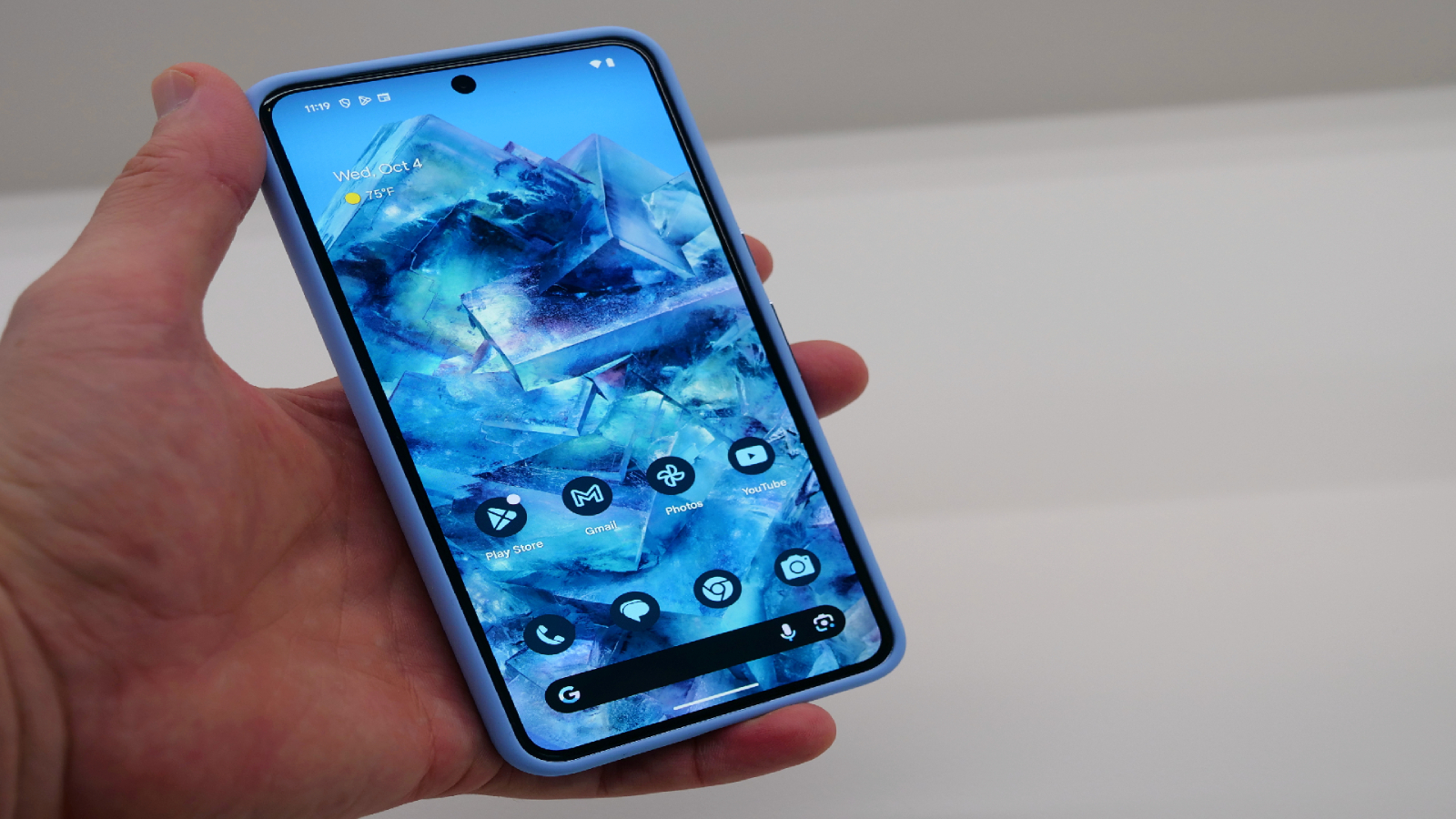
The best feature that the Pixel 8a offers is that it should feature the same performance as the Pixel 8, since both phones are packed with the Google Tensor G3 chip. On the Geekbench overall performance test, the Google Pixel 8 scored 3,744. Unfortunately, its performance is no match for the iPhone 15 (6,179) and Galaxy S23 (4,972). However, in the context of the Pixel 8a, you're getting your money's worth.
According to Google, the phones both get the same 24+ hours of battery life, but that doesn't seem accurate unless the company is really squeezing that "+" for all its money. The Pixel 8a features a 4492 mAh battery, while the Pixel 8 offers a 4575 mAh battery. It's not a huge difference, but technically, you might get better battery life on the Pixel 8. However, there are plenty of factors to consider, including display size.
The Pixel 8a features stereo speakers and 2 microphones, while the Pixel 8 is packed with spatial audio stereo speakers and 3 microphones.
Technically, the Pixel 8 also offers better wifi, as it features Wi-Fi 7 versus the Pixel 8a's Wi-Fi 6. However, that's dependent on what kind of router you're connected to, so the difference might not be relevant.
Google Pixel 8a vs. Google Pixel 8: Cameras
The Pixel 8a might offer a better deal in raw specs, but not everything is as it seems, and that's highly prevalent in the cameras. The Pixel 8a features 64MP Quad PD wide and 13MP ultrawide rear cameras and a 13MP front camera. Meanwhile, the Pixel 8 is outfitted with 50MP wide and 12MP ultrawide rear cameras and a 10.5MP front camera.
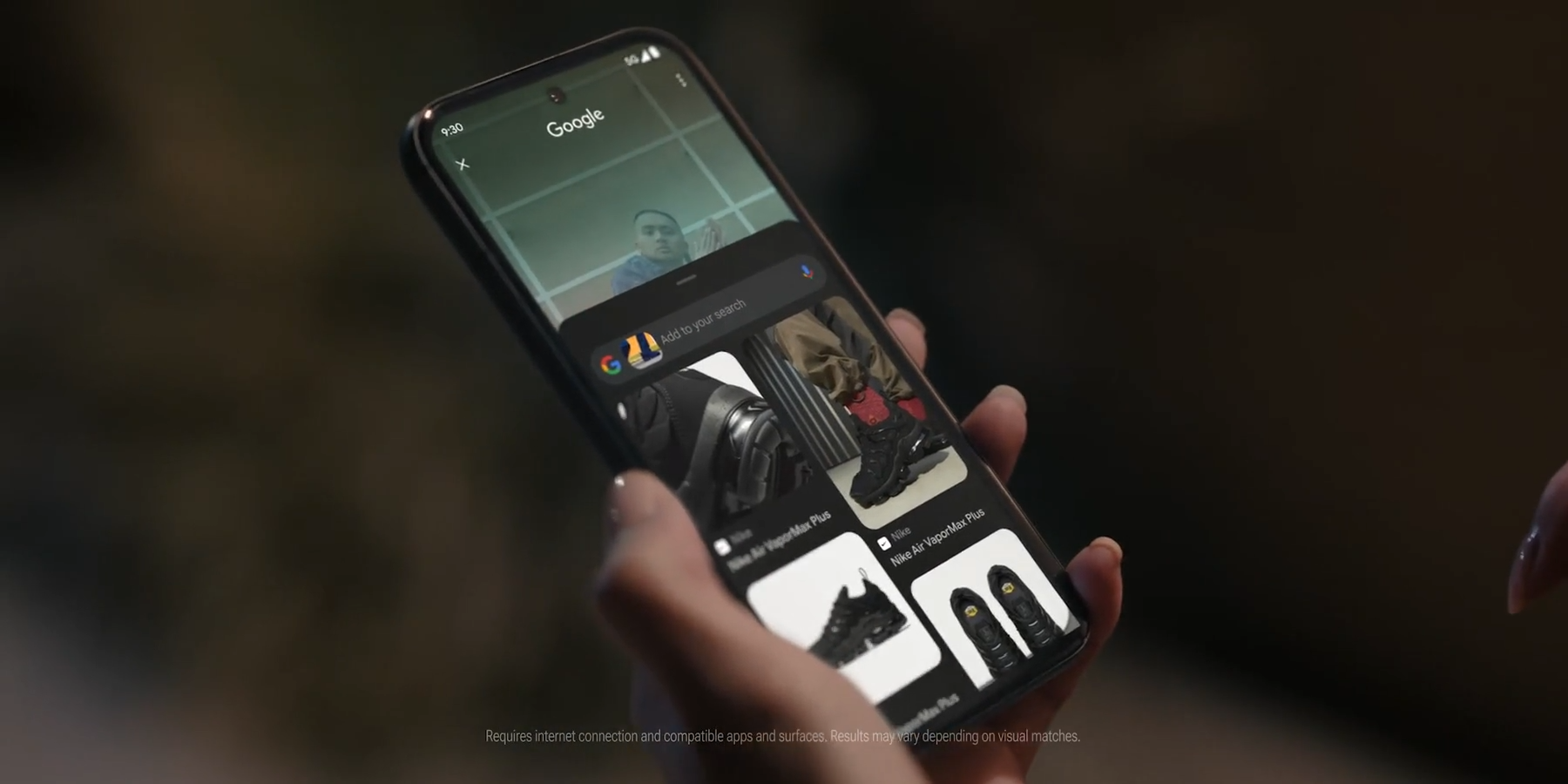
This was similar to the Pixel 7a's set of cameras, but while it and the Pixel 8a feature slightly sharper cameras, they don't offer nearly as many features. The Pixel 8 primary features a superior f/1.68 aperture (lower is better) versus the f/1.89 on the Pixel 8a. The Pixel 8 also features a larger sensor. The Pixel 8 takes better low-light photos between the aperture and the sensor.
As far as the sensors go, with the Pixel 8a, you get only optical + electronic image stabilization on wide. Meanwhile, the Pixel 8 features the single-zone LDAF (laser detect autofocus) sensor and the spectral and flicker sensor (in addition to the Pixel 8a's sensor). The former sensor identifies the best position to take a reading, and the latter assists while shooting any pulsed light source (LCD screens and LED lights).
The field of view is also better, with the Pixel 8's being 82 degrees (wide) and 125.8 degrees (ultrawide) compared with the Pixel 8a's 80 degrees (wide) and 120 degrees (ultrawide).
Google Pixel 8a vs. Google Pixel 8: Which should you buy?
So, which is better for you — the Pixel 8a or the Pixel 8? I've said it many times before, but the average user might not notice the difference between them. However, the cameras are the most noticeable difference (apart from the color schemes).
The Pixel 8 has more and larger sensors and a better aperture, so it will take better photos overall, especially in low light. If you don't mind not having all the fancy sensors, you might be okay with the Pixel 8a.

Rami Tabari is the Reviews Editor for Laptop Mag. He reviews every shape and form of a laptop as well as all sorts of cool tech. You can find him sitting at his desk surrounded by a hoarder's dream of laptops, and when he navigates his way out to civilization, you can catch him watching really bad anime or playing some kind of painfully difficult game. He’s the best at every game and he just doesn’t lose. That’s why you’ll occasionally catch his byline attached to the latest Souls-like challenge.
